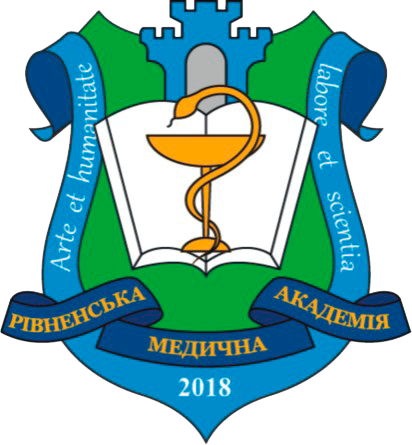FEATURES OF PROVIDING MEDICAL AND PSYCHOLOGICAL ASSISTANCE TO MILITARY SERVANTS OF THE ARMED FORCES OF UKRAINE WITH THE PRESENCE OF POST-TRAUMATIC STRESS DISORDER WITH SIGNS OF ADDICTIVE BEHAVIOR (OWN EXPERIENCE)
DOI:
https://doi.org/10.32782/health-2024.1.10Keywords:
PTSD, addictive behavior, non-pharmacological methods of treatmentAbstract
80% of military who suffered combat mental trauma, caused by long-term stress and provoked by individual psychological characteristics, showed symptoms of mental trauma. According to the obtained data, the experience of combat mental trauma is determined, first of all, by the individual and psychological characteristics of the military, which provoke the possible further development of post-traumatic stress disorder (PTSD), adaptation diseases (psychosomatic diseases, neuroses and neurotic states), etc. The aim of the study is to study the features of the psychological component of post-traumatic stress disorder in wartime conditions (PTSD screening) and the use of effective non-pharmacological methods of treatment to improve the patient's quality of life. During the study, a scientific complex of methods was developed, which were used for screening PTSD with signs of addictive behavior. During the collection of clinical anamnesis, the priority significance of the dominance of two components was substantiated in the participants of hostilities: neurotic disorders (neuroses and neurosis-like states) and clinical manifestations of stress disorders of dysfunction of the autonomic nervous system. The vegetative component is present in almost all 90 respondents (92.8%) as a component of stress. Based on the screening using the Alcohol Use Disorders Identification Test, 11 people (11.3%) had an average AUDIT score of 18.7 points, which is dangerous alcohol use. The experience of studying the features of the psychological component of PTSD in wartime conditions in 97 military was summarized, medical/psychological assistance was provided and effective results were obtained in this group of patients. In order to prevent deterioration of the mental health of servicemen and restore their social and professional status, treatment and rehabilitation measures were carried out simultaneously with the elimination of PTSD symptoms and abuse, which made it possible to obtain encouraging results.
References
Goodwin L., Jones M., Rona R.J. Prevalence of delayed-onset posttraumatic stress disorder in military personnel: Is there evidence for this disorder? Results of a prospective UK cohort study. The Journal of nervous and mental disease. 2012. Vol. 200, № 5. P. 429–437. doi: 10.1136/oemed-2011-100382.331.
Jorge R.E. Posttraumatic Stress Disorder. CONTINUUM: Lifelong Learning in Neurology. 2015. Vol. 21, № 3. P. 789–805. doi: 10.1212/01.CON.0000466667.20403.b1.
Blinov O. Бойовий стрес та результати його емпіричного дослідження. Psychological Journal. 2018. № 12. С. 9–22. doi: 10.31108/2018vol12iss2pp9-22.
Кокун О.М., Агаєв Н.А., Пішко І.О., Лозінська Н.С. Психологічна робота з військовослужбовцями – учасниками АТО на етапі відновлення : методичний посібник. Київ : НДЦ ГП ЗСУ, 2017. 282 с.
Чабан О.С., Безшейко В.Г. Симптоми посттравматичного стресу, тривоги та депресії серед учасників бойових дій у зоні Антитерористичної операції. Український вісник психоневрології. 2017. Вип. 2. Т. 25. С. 80–84.
Блінов О.А., Максименко С.Д., Черненко І.О. Опитувальник скринінгу посттравматичного стресового розладу (ОС ПТСР) : науково-методичне видання. Київ : Талком, 2019. 23 с.
Фітькало О.С. Прогнозування формування алкогольної залежності в осіб із посттравматичним стресовим розладом (ПТСР). Український медичний часопис. 2023. № 6. С. 84–86. doi: 10.32471/umj.1680-3051.158.247539.
Jakupcak M., Conybeare D., Phelps L., Hunt S., Holmes H.A., Felker B., et al. Anger, hostility and aggression among Iraq War veterans reporting PTSD and subthershold PTSD. Journal of Traumatic Stress. 2007. Vol. 20. № 6. P. 945–954. doi: 10.1002/jts.20258.
Уживання алкогольних напоїв і розлади адаптації у комбатантів (результати пілотного дослідження) / І.В. Лінський та ін. Лікарська справа. 2019. № 4. С. 16–21. http://nbuv.gov.ua/UJRN/LiSp_2019_4_5.
Романенко Ю., Коляденко Н. Посттравматичний стресовий розлад як медико-психосоціальна проблема. Перспективи та інновації науки. 2021. № 2(2). С. 297–304. doi: https://doi.org/10.52058/2786-4952-2021-2(2)-297-304.
Лінська К.І. Хронометричний профіль хворих на депресію при використанні тесту Спілбергера – Ханіна. Український вісник психоневрології. 2019. № 27(1). С. 46–56.
Reed G.M., First M.B., Kogan C.S. Innovations and changes in the ICD – 11 classification of mental, behavioural and neurodevelopmental disorders. World Psychiatry. 2019. Vol. 18. № 1. P. 3–19. doi: 10.1002/wps.20611.
Wintermann G.B., Rosendahl J., Weidner K. Risk factors of delayed onset posttraumatic stress disorder in chronically critically ill patients. The Journal of nervous and mental disease. 2017. Vol. 205. № 10. P. 780–787. doi: 10.1097/NMD.0000000000000714.
Давіденко К. Посттравматичний стресовий розлад: рекомендації з профілактики та лікування. Український медичний часопис. 2019. https://umj.com.ua/uk/novyna-159875-posttravmatichnij-stresovij-rozlad-rekomendatsiyi-zprofilaktiki-ta-likuvannya.
Waller M., Charlson F.J., Ireland R.E.E., Whiteford H.A., Dobson A.J. Time-course of PTSD symptoms in the Australian Defence Force: a retrospective cohort study. Epidemiology and psychiatric sciences. 2016. Vol. 25. № 4. P. 393–402. doi: 10.1017/S2045796015000517.
Туриніна О. Психологія травмуючих ситуацій : навчальний посібник. Київ : Персонал, 2017. 160 с.





